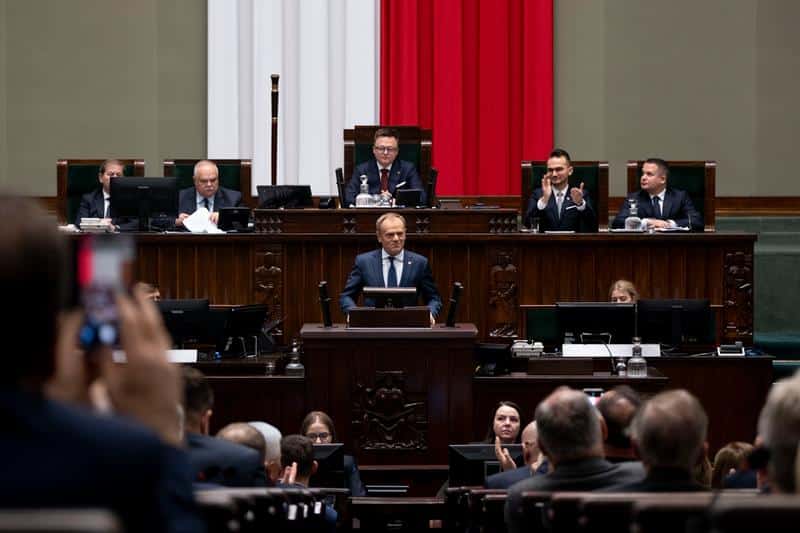Allowing taxpayers to make agreements with the tax office, binding deadlines for officials in the Code of Administrative Procedure, a separate government department for coal phase-out, and most importantly, rebuilding dialogue between the government and business – these are among the issues highlighted as important for entrepreneurs in the “Foresight Wiejska 19. Proposals for the new government” report, published on Tuesday.
The publication of the report coincides with the expose by Prime Minister Donald Tusk. Even before the swearing in of the new government, the Speaker of the Sejm, Szymon Hołownia, has openly announced a dialogue with entrepreneurs. The needs are great, and so are the expectations of the business sector.
“The report contains demands formulated from the point of view of entrepreneurs, reflecting a deep need for a change in the attitude of public administration towards business and a return to the path of partnership cooperation,” emphasizes Bartłomiej Rajchert, CEO of GDS Strategic Consulting Group, the initiator of the report.
In terms of state-business cooperation, the primary demand voiced by experts is a change in the attitude of the world of politics and public administration.
“We call for the reintroduction of proper, transparent, and effective social dialogue, i.e., a law-making process where market participants have a real influence on emerging regulations. Social dialogue cannot be superficial. And regulatory dialogue must be based on science and facts,” emphasizes Dr. Ewa Starzyk in the report.
Experts advocate the introduction of an additional mechanism for regulatory impact assessment (RIA), entrusted to analytical centers not linked to the administration, as well as mandatory ex-post RIA, verifying whether the regulation actually leads to the achievement of its objectives and requires potential amendments. Other proposals include political and diplomatic support for Polish business on the international stage and improving the analytical capabilities of public administration.
In the section devoted to energy and climate, experts point out delays in implementing EU climate directives, the low quality of public policies, and the fact that a social agreement is necessary for an energy transition, otherwise it will be politically and socially very expensive. Among the proposals is the establishment of a separate department dealing solely with the issue of coal phase-out and providing miners with alternative jobs.
The section on taxes suggests, among other things, the introduction of binding deadlines for processing matters by authorities, linked to penalties for exceeding them as a tool to combat the ubiquitous prolongation of proceedings. They also draw attention to the need to curb abuses concerning temporary arrests in business.
Another issue is enabling taxpayers to make agreements with the tax office – something already allowed in the USA and some European countries. In Poland, however, in a contentious situation that is existential for the taxpayer, their money is essentially “temporarily arrested” by the state, and the tedious process of seeking justice in court – even if it ends successfully for the entrepreneur – often comes after the company has already gone under.
